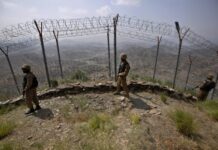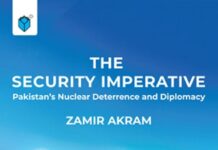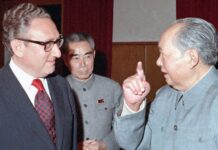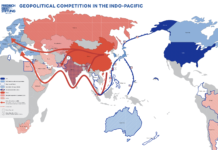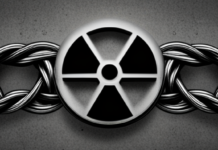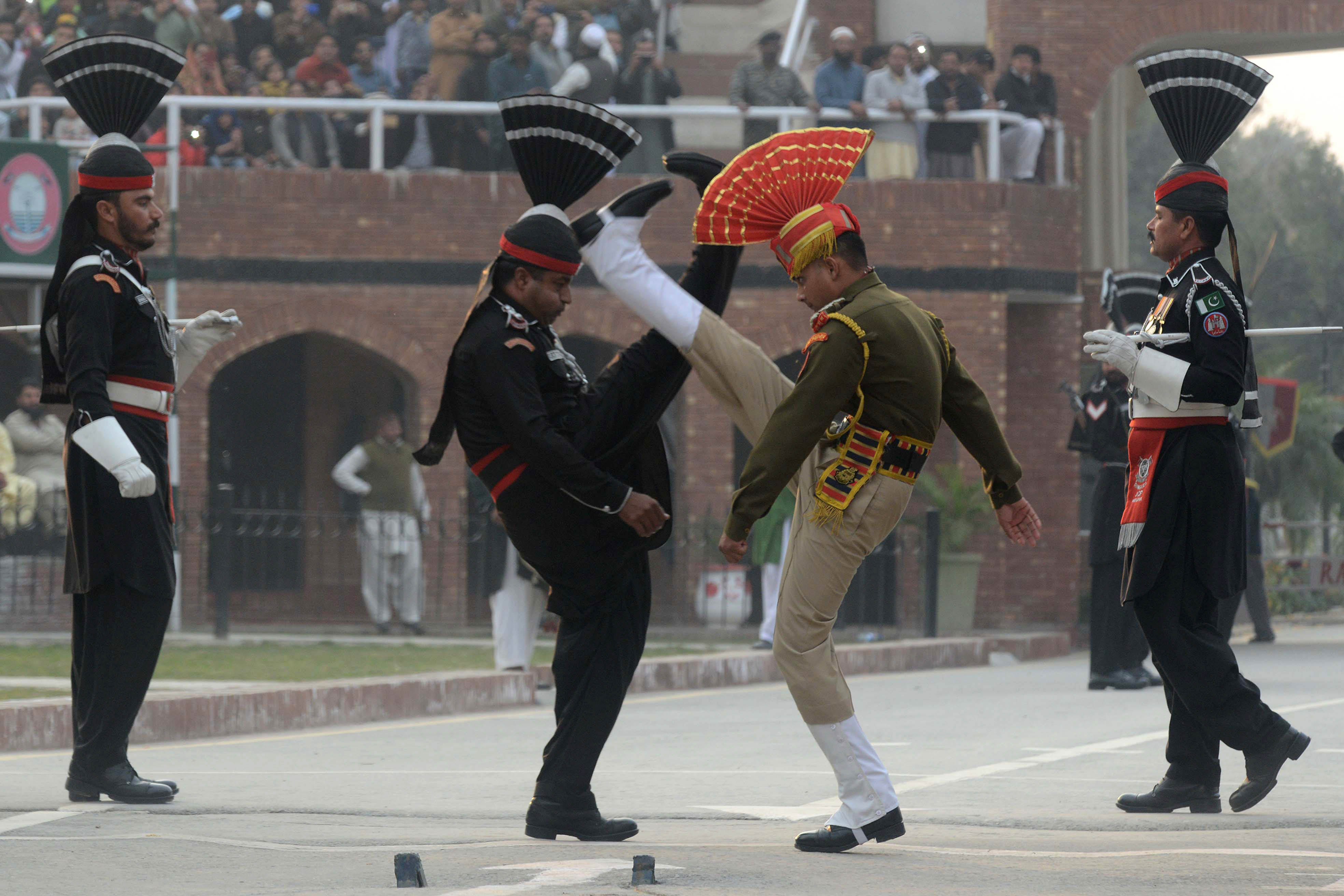
Ilhan Niaz
The first episode of the 1980s BBC comedy Yes Prime Minister (“The Grand Design”), sees James Hacker, having manipulated his way to the premiership, wrestle with the contradictions of nuclear deterrence and the immense personal responsibility that is now his as the man invested with nuclear command authority. Taken on a tour to inspect the proverbial nuclear “button” (which isn’t actually a button but a communications link) the premier learns that he is expected to hit send within 12 hours of war between the Warsaw Pact and NATO. An increasingly overwhelmed Hacker wonders what would happen if he miscalculates and authorizes use of the deterrent to which the general conducting his tour assures him that it wouldn’t matter because no one would be left alive to find out about the mistake. The prime minister is sufficiently shaken and unable to focus on anything else that his earnest and relatively trustworthy private secretary (Bernard Wooley) suggests he meet with the scientific adviser, but only at home after working hours. This precaution is necessary because the adviser has a German accent and the ever-scheming Cabinet Secretary, Sir Humphrey Appleby, doesn’t think he can be trusted. Later, in the evening, the scientific adviser drops by for a chat with the PM and the two discuss various scenarios in which Hacker would be asked or required to push the button. It is then that the evident absurdity of actually committing collective suicide in order to ensure security sinks in. Hacker decides to cancel the purchase of Trident (the missiles, not the chewing gum) and spend the money on conventional forces and introduce compulsory military service as faced with even the daunting prospect of the Red Army on the English Channel he wouldn’t actually push the button and consign his people to oblivion.
In the Pakistani context, it is perhaps no surprise that a country that has pursued suicidal policies in terms of demography, environment, human resource development, and religion in politics, would be unusually predisposed to predicating its security on the demonstrable resolve to commit suicide though use of its nuclear deterrent if pushed beyond a point by its equally benighted Indian neighbor. Should a nuclear exchange occur in South Asia it would leave in its wake a shattered civilization, ecological collapse, and leave over a billion exposed to starvation and sickness, and those who survive will envy those fortunate enough to die in the initial attack. The redeeming virtue in the logic of Pakistan’s case for nuclear weapons is that Indian military intervention ensured the secession of East Pakistan in 1971, while the Indian nuclear test of 1974 (and multiple tests in 1998) compelled Pakistan to get serious about acquiring and eventually demonstrating its own deterrent. Given that the West has no inclination to assuage Pakistan’s genuine security concerns vis-à-vis India, help resolve the Kashmir dispute, or even adopt a position of neutrality by refusing to sell India conventional weapons (which has the effect of lowering the nuclear threshold) indicates that Pakistan’s reliance on its nuclear deterrent with likely increase in the long-term.
This brings us to a historical problem in that the mere possession of nuclear weapons does not insulate a state from internal collapse. It is also does nothing to deter adversaries from exacerbating domestic fault lines, engaging in asymmetric or hybrid warfare. The Soviet Union’s socio-economic stagnation and increasingly dysfunctional internal governance sapped it of vitality for an entire generation before attempts at reform ended up killing the patient. Thus, at the risk of apocalyptic escalation, nuclear weapons can, and do, deter adversaries from some types of behavior, but they cannot compensate for serious inherent weaknesses and might actually allow state elites to become complacent in face of non-military challenges.
Two decades ago Pakistan became a declared nuclear weapons state. The decision was celebrated at the time and, since then, Pakistan’s nuclear arsenal has grown in numerical strength and sophistication with the old policy of a credible minimum deterrent now turning into one that seeks full-spectrum deterrence. Since 1998, Pakistan has experienced a military coup (1999), the fall of a military regime (2008), and shaky civilian governments that measure their success primarily by their ability to ride out the five-year term limit imposed by the Constitution (2008-Present). Pakistan has courted default in 1998, 2000, 2008, 2013, and may well return to the IMF’s intensive care unit in 2019 (having spent all but a handful of the past 35 years there). Between 2001 and 2016, according to the Supreme Court of Pakistan’s Quetta Commission, the war on terror cost Pakistan 60,000 lives and at least $120 billion in economic losses. Although violence has declined over the past several years and the economy is experiencing consumption-driven growth, external balances are in the deep red, Pakistan is set to run out of water by 2025, and the literacy rate, notwithstanding increases in budget allocations for education, remains at 58% with no change over the past five years and issues pertaining to the quality of education nowhere on the radar. One can add to this mix the population explosion, with growth momentum likely to ensure that even if the growth rate were to drop to 1% per year tomorrow and stabilize at that level, Pakistan would still be adding 2-2.5 million people a year for the remainder of the century (that’s 160 million + 208 million, or 368 million by 2100). Relative to peer economies, Pakistan’s productivity continues to tank, with ballooning power sector debt threatening a return to acute electricity shortages. And, in terms of the psycho-social environment, an increasingly cowed media, the growth of Sunni Barelvi radicalism, tribal Pashtun estrangement, and the persistence of Baloch separatism, pose serious risks to the sustainability of the constitutional political order.
Pakistan’s nuclear weapons do protect the country from being invaded or attacked by India and are therefore necessary. This said, to borrow a few of Toynbee’s categories, Pakistan’s creative minority (to the extent it can be said to have one) is so committed to the pursuit of ‘salvation by the sword’ that it’s unable to address the ‘schism in the soul’ and devise rational, effective, solutions to the wider set of challenges that imperil national survival and competitiveness. While being appreciative of the clout their nuclear arsenal confers on their country and acknowledging the professionalism of those entrusted with the management of the weapons, Pakistanis need to realize that it is time to move Pakistan’s security paradigm out of an Indo-centric binary and try to comprehend major challenges in a holistic and integrated manner.
Dr. Ilhan Niaz is an Associate Professor at the Department of History, Quaid-i-Azam University, Islamabad.



